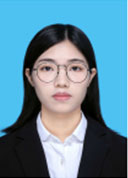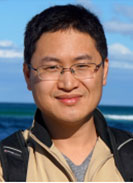SPS Webinar: 14 October 2022, presented by Dr. Peilan Wang & Dr Jun Fang

Upcoming SPS Webinar!
Title: Channel State Information Acquisition for Intelligent Reflecting Surface-Assisted mmWave/THz Systems
Date: 14 October 2022
Time: 8:00 AM Eastern (New York time)
Duration: Approximately 1 Hour
Presenters: Dr. Peilan Wang & Dr Jun Fang
Based on the IEEE Xplore® article: FedLoc: Federated Learning Framework for Data-Driven Cooperative Localization and Location Data Processing
Published: IEEE Open Journal of Signal Processing, November 2020, available in IEEE Xplore®
Download article: The original article is available for download.

Abstract:
Intelligent reflecting surface (IRS) has recently emerged as a promising paradigm for future wireless communications. Owing to its remarkable capability in reshaping the propagation environment, IRS has a great potential to boost spectral efficiency, mitigate interference, and enhance physical security. Channel state information acquisition is essential for the operation of IRS-assisted communication systems, which is very challenging due to the massive channel size and the passive nature of IRS. This seminar focuses on channel estimation for IRS-assisted millimeter-wave/terahertz systems. We first introduce the concept of cascade channel that is used to model the multiplicative relation between the two physical channels, namely the base station-to-IRS and IRS-to-user channels. Many transceivers optimization tasks, such as joint active and passive beamforming, require the knowledge of the cascade channel matrix, which in general, has a very large dimension and would entail a substantial amount of training data for estimation. To address this problem, we unveil some inherent sparse/low-rank structure of millimeter-wave/terahertz cascade channels. This enables the development of efficient compressed sensing-based channel estimation and beam alignment methods with significantly reduced training requirement. At the end of this talk, we will discuss some future research directions and challenges related to this topic.
Biography:

Dr. Peilan Wang received the B.Sc. degree from the University of Electronic Science and Technology, Chengdu, China, in 2018, where she has been working toward the Ph.D. degree since September 2018.
Her current research interests include compressed sensing, millimeter wave, reflecting intelligent surface and signal processing.

Dr. Jun Fang (Senior Member, IEEE) received the B.S. and M.S. degrees in electrical engineering from the Xi’dian University, Xi’an, China, in 1998 and 2001, respectively, and the Ph.D. degree in electrical engineering from the National University of Singapore, Singapore, in 2006.
In 2006, he was a Postdoctoral Research Associate with the Department of Electrical and Computer Engineering, Duke University, Durham, NC, USA. From January 2007 to December 2010, he was a Research Associate with the Department of Electrical and Computer Engineering, Stevens Institute of Technology, Hoboken, NJ, USA. Since 2011, he has been with the University of Electronic of Science and Technology of China, Chengdu, China, where he is a full professor. His research interests include compressed sensing and sparse theory, massive MIMO/mmWave communications, and statistical inference.
Dr. Fang was the recipient of the IEEE Jack Neubauer Memorial Award in 2013 for the best systems paper published in the IEEE Transactions on Vehicular Technology. He served as an Associate Technical Editor for IEEE Communications Magazine from 2012 to 2020. He is currently a Member of the IEEE SPS Sensor Array and Multichannel TC, and a Senior Associate Editor for IEEE Signal Processing Letters.

